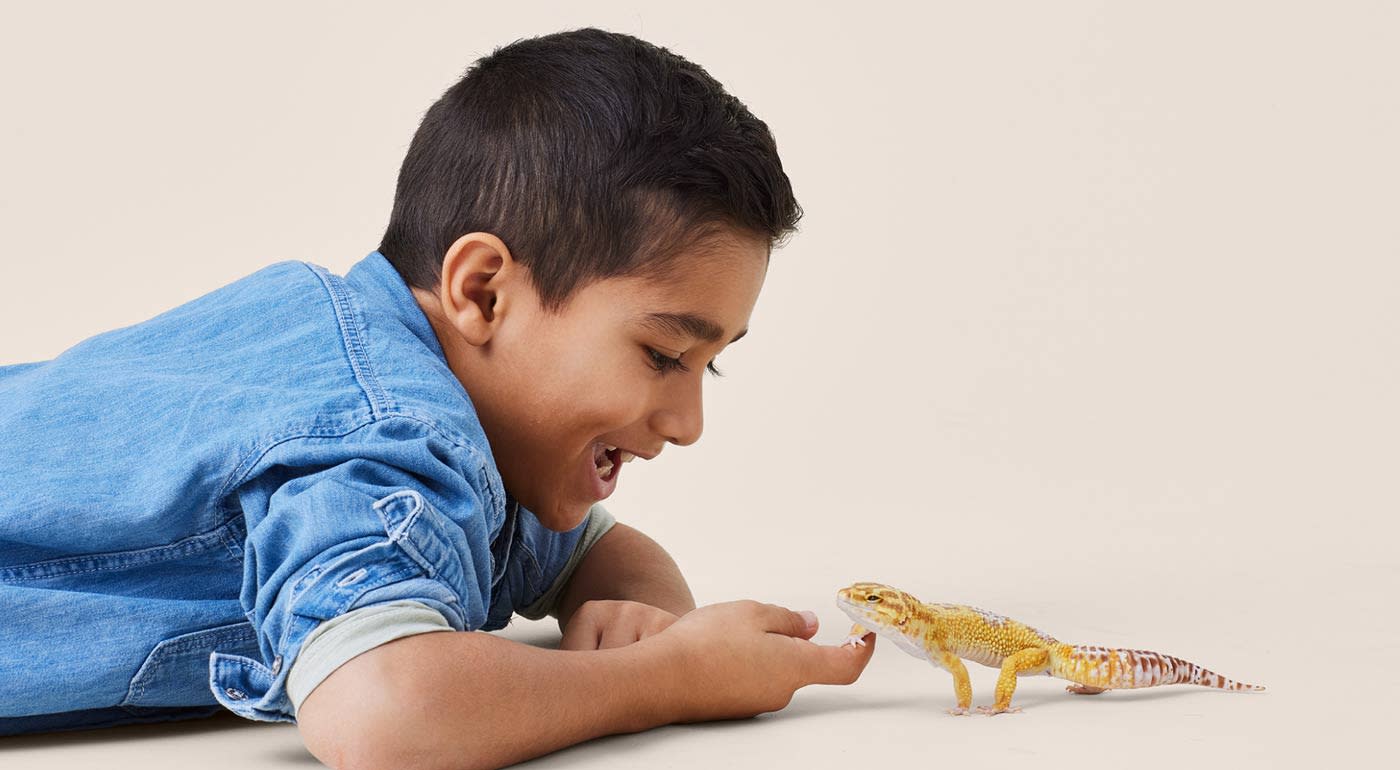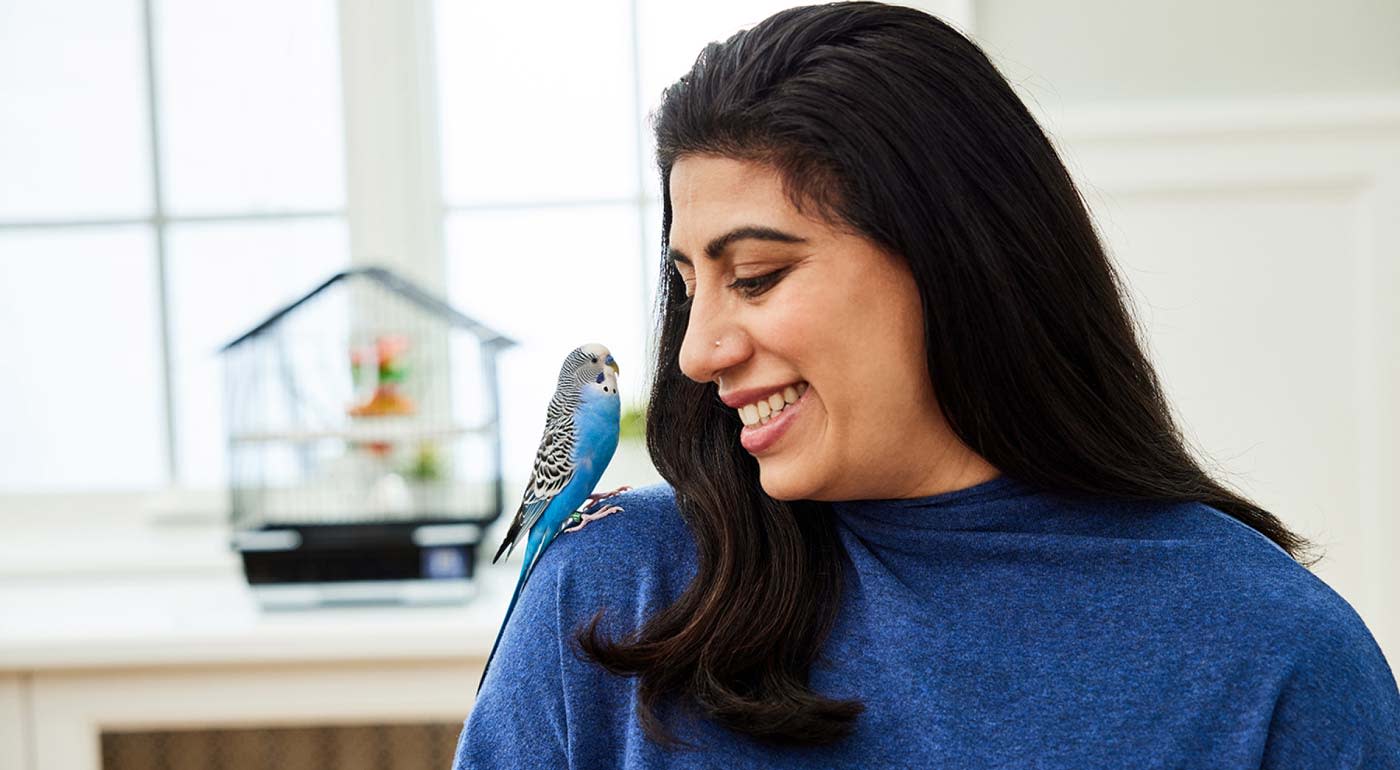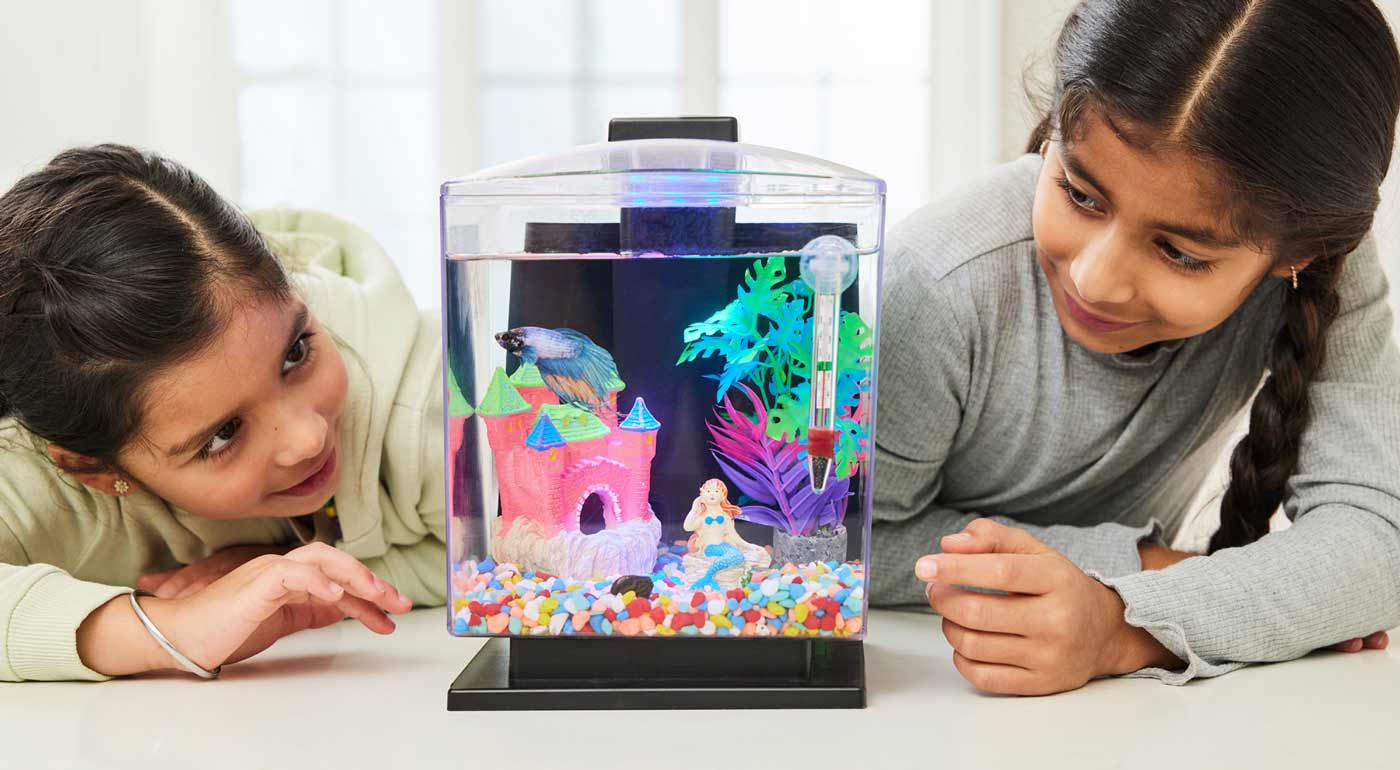Are you picturing an adorable hamster running laps in a wheel? A bird serenading you in the morning? Or perhaps colourful fish bringing zen vibes to your space?
Whatever type of small pet you’re dreaming of, one thing’s for sure: these pint-sized pals require daily care and attention that is highly specific to their species and even breed.
As Zana Ellis, Manager of Learning and Development at Pet Valu, explains, from setting up the perfect habitat to nailing their diet, there’s a lot to think about. But don’t worry, we’ve got you covered with all the details you need to create a happy, healthy home for your new mini family member.
Let’s dive into the specifics for some of the most common small pets: hamsters, reptiles, birds and fish.
Hop on the hamster wheel
Hamsters are charming, often fairly low-maintenance pets that are ideal for small spaces. However, they come with some quirks that new owners should know.
“Everybody thinks about hamsters when you think about a small pet,” Ellis shares, but keep in mind these creatures are nocturnal and love their alone time. Be prepared for late-night wheel running and limited daytime interaction, she says.
When it comes to housing, a spacious enclosure with tunnels or multi-level platforms is ideal. Syrian hamsters, for example, are naturally active and benefit from setups that encourage movement, Ellis says.
“Make sure that all the seals and connections are tight and that the doors will snap shut because they’re pretty good escape artists,” she advises.
Hamsters’ dietary needs are relatively simple. “There are seed types of foods, and there are pellet types of foods,” Ellis explains. Pellets are a great base for their diet, she says, with seeds and hay added as occasional enrichment.
Warm up to a cold-blooded bestie
From geckos to snakes, the range of needs for reptiles is as wide as their species list.
“You really have to know the species you’re getting,” Ellis says. Some reptiles, like bearded dragons, can be social and learn to enjoy handling, while others, such as Pacman frogs, are more hands-off due to their delicate skin.
Setting up the right habitat is essential. Start small with young reptiles and upgrade as they grow. “If you’re getting a small lizard, you’re going to have a smaller cage to start, and then as they grow, you will get a bigger one,” Ellis notes.
Their habitat might include basking rocks, UVB lighting, hidey holes and even climbing vines. Humidity and temperature are also crucial, so invest in tools like hygrometers and thermostats to maintain the right environment.
Diet is another key factor. Ellis emphasizes, “It’s really important to make sure you’re comfortable with feeding your reptile the food it needs to thrive.” This might include live insects, frozen feeders, or specialized reptile pellets, depending on the species.
Make a feathered friend
Birds are known for their vibrant personalities and social nature, making them a wonderful choice for interactive pet owners. “Pet birds are very social and a delightful addition to any family,” Ellis says.
A spacious cage is non-negotiable, she continues: “Every cage for a bird should be big enough for them to fly around in their cage a little bit.” Additionally, birds benefit from out-of-cage time, so ensure your home has a safe area where they can stretch their wings.
As for food, “it might be a common misconception that all birds eat seeds,” Ellis shares. “Yes, some birds do eat seeds, but for a healthy diet, often pellets are the way to go.” She also recommends giving them species-specific treats.
“Birds are very curious and engaged creatures, and they really benefit from foraging, and having to look for those treats — and you can even train them to do little tricks.”
Just keep (your fish) swimming
Fish are the ultimate zen pets, bringing beauty and tranquility to your space. But setting up their environment takes effort.
“The key to a happy, healthy aquarium is your water quality,” Ellis emphasizes. “Spend the time to slowly build up your tank, treat the water, and cycle it so that all the nitrogens are in balance.” This process can take weeks, so patience is essential.
Choosing the right fish starts with the tank. Consider the size, how many fish you want and whether the fish you want to include are all compatible. “There’s a hierarchy when you’re building a fish tank,” Ellis explains. Not all species can coexist, and you can only have a certain number of fish per gallon of water.
Feeding fish is all about understanding their eating habits. “There are top-feeders, mid-feeders, and bottom-feeders,” Ellis explains, and you need to match their food to their position in the tank.
“There's so many different kinds of fish food, it's actually a little bit more evolved than what it used to be,” she says. “There are flakes, there are pellets, there are vacation feeders, and there's even treats too, and granules.”













































